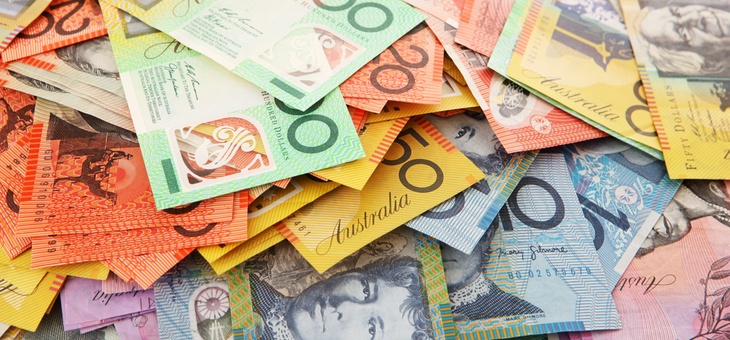The federal government says the economy won’t “fall off a cliff” when it scraps COVID-19 income support measures because Australian homes and businesses have stockpiled more than $200 billion of extra savings.
The $90 billion JobKeeper program, JobSeeker rate increases, and Coronavirus Supplement payments finish at the end of March.
The Financial Review reported that household banking deposits jumped by almost $113 billion or 11.4 per cent from the start of January last year to the end of November. Non-financial business deposits increased by almost $104 billion or 17.6 per cent.
Savings were boosted by government stimulus measures, much of which is yet to be spent by recipients.
However, business groups concerned about the upcoming drop off in support are lobbying the government for “industry specific” financial assistance.
“The tourism industry and hospitality sector, in particular, are finding it tough to contemplate a future without open borders and lowered government assistance,” The Age reports.
Small business ombudsman Kate Carnell is lobbying the government to start handing out HECS-style loans for small businesses to help them avoid financial ruin after JobKeeper ends.
She will present the proposal in a pre-budget submission to Treasury, seeking ultra-low or zero-interest loans for struggling small companies. The loans would be repaid only when the firms reach a certain level of revenue.
“There’s about 30 per cent (of businesses) doing well, another 40 per cent that are okay and getting back, and then there’s 30 per cent in all sorts of trouble,” Ms Carnell said.
“The reality is now, with JobKeeper being reduced, and the associated benefits like commercial tenancies and rent (relief) being removed … they desperately need ongoing support until their part of the economy can operate again,” she said.
“What are we doing as JobKeeper finishes for businesses that are still struggling?”
Ms Carnell said there is “a widening gap between the businesses that did well during COVID and have recovered as restrictions have been lifted and those businesses that are still really struggling”.
The Council of Small Business Organisations Australia is backing the submission.
Treasury modelling shows economic activity will be 5 per cent higher in 2020–2021 and 4.5 per cent higher in 2021–2022 than it would have been without stimulus spending from the federal government. There was $251 billion worth of economic support planned, of which $142.6 billion has so far been paid.
9News says likely reasons for the savings boost include the inability to go on family holidays during COVID-19 restrictions, concerns over job security leading to ‘rainy day’ savings and reduced spending opportunities after shops were forced to close their doors.
Australia dipped into recession last year after recording two consecutive quarters in which the nation’s Gross Domestic Product (GDP) dropped. In December, a substantial GDP recovery ended the recession. Despite this, federal Treasurer Josh Frydenberg said the pandemic would continue to have an economic impact.
“Technically the recession is over, but the recovery is not,” Mr Frydenberg said at the time.
“We know that a lot of Australian families are in a pretty tough financial situation and a number of Australians are still out of work.”
Economist Chris Richardson, from Deloitte Access Economics, is positive about 2021.
He predicts:
- flying will resume, bringing students and tourists
- unemployment will improve slightly and slowly
- manufacturing will grow slowly
- interest rates won’t change – but government budgets will have to
- the recovery will be big.
“There’s a rapidly growing possibility that this recession – as deep as it’s been – will see a more V-shaped recovery than our current forecasts allow for,” he said. He added that while recessions are terrible, it’s important to remember a downturn means there are, “unemployed people who can be employed again, empty shops and offices that can be filled, and businesses that can start to work to their full capacity again”.
“The bigger the downturn, the bigger the recovery. That’s an equation we all need to keep front of mind.”
Should government support continue past March? Should government pandemic assistance become more focused?
If you enjoy our content, don’t keep it to yourself. Share our free eNews with your friends and encourage them to sign up.
Related articles:
https://www.yourlifechoices.com.au/health/covid19/historic-quarter-for-australias-economy
https://www.yourlifechoices.com.au/finance/news-finance/centrelink-changes-could-sink-economy
https://www.yourlifechoices.com.au/news/your-super-may-save-the-economy

